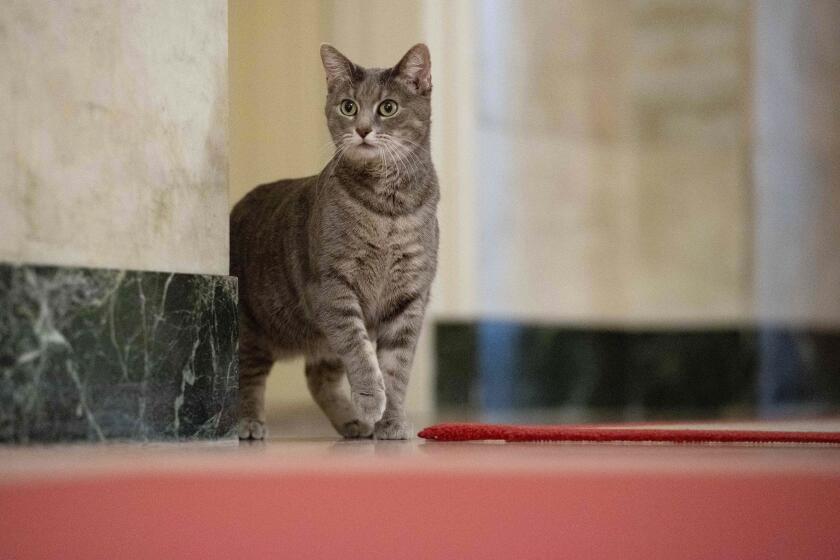A Word, Please: Coffee-shop prompt stirs ChatGPT to brew up bland copy

Recently I was hired to write a 200-word article based on an 800-word press release about a new coffee shop. I finished and turned it in, then it hit me: It’s just a matter of time before the client who hired me realizes AI programs can write these things for free.
To size up my competition, I pasted the original press release into ChatGPT and asked it to create its own 200-word article, then I compared our work.
ChatGPT bases its writing on lots and lots of online documents and databases, guessing what word should come next based on the words all those other articles used next. The result is a very slick, polished voice, along with a ton of cliches and empty sentences. But ChatGPT’s biggest weakness is that it has no idea what interests humans. What’s more, it doesn’t understand what words mean.
Compare our leads (note: I’ve changed some names and details because my work-for-hire doesn’t belong to me). ChatGPT’s opening sentence: “Caffe Maximo, the brainchild of industry veterans John Doe and Jack Jones, has unveiled its newest jewel in the crown — a bright and modern coffee haven nestled in Redondo Beach.”
A coffee shop is a “brainchild”? That’s a bit of a stretch. “Brainchild” usually means something that arose from an innovative idea, and I’m pretty sure these guys didn’t invent coffee shops. Also: “jewel in the crown”? That cliché only works when the reader knows what “crown” you’re talking about. Then there’s “a coffee haven,” which is odd, and “nestled,” which is shopworn and at the same time not quite accurate.
Here’s my first sentence: “Redondo Beach is finally getting a taste of the ‘farm-to-you’ coffee beloved by L.A.’s most discriminating chefs and connoisseurs.” My thinking here, as a human being, is that when a truly high-end coffee joint comes to town, readers care more about the coffee than, say, “unveiling a jewel in a crown.”
Because here’s what you wouldn’t know from reading ChatGPT’s version: This coffee brand is among the best — a Michelin-starred chef serves it in his restaurants, as do a number of other chichi California eateries. But ChatGPT never mentions this coffee brand’s impressive bona fides.
ChatGPT follows that first sentence with: “This marks the seventh location for the duo, who have been at the forefront of L.A.’s farm-first coffee movement since their inception in 2006.” This is hardly the type of information readers are dying to learn. And notice “their inception.” Technically, this means Doe and Jones’ inception, like when they were born — or possibly conceived. A logical fail for ChatGPT.
June Casagrande explains a complicated grammar rule to them who are interested, even though that might not sound quite right.
Now the AI program’s third sentence: “With a steadfast commitment to quality and community, Caffe Maximo’s expansion into Redondo Beach symbolizes its dedication to fostering local connections.”
In a book I published in 2010, I spent a whole chapter explaining why writers should not do this, which I will summarize here in two syllables: Who cares? Such a vacuous collection of words wastes the reader’s time and, in a tight article, wastes precious space too.
My next sentences talk about that Michelin-starred restaurant cred, what Caffe Maximo means by “farm-to-you” and the impressive scores their coffees earn from expert tasters.
ChatGPT continued: “To celebrate each new venture, Caffe Maximo introduces an exclusive coffee blend, and the Redondo Beach Blend is no exception.” My version cut straight to the custom blend, without wasting space explaining that every Caffe Maximo location gets one. And note that the blend itself doesn’t make sense with the hackneyed “is no exception.” It’s the location (which ChatGPT oddly called a “venture”) that’s “no exception,” not the blend itself.
ChatGPT wraps up with an avalanche of cliches: “all within a thoughtfully designed space that seamlessly blends classic and modern elements” and “as the doors of Caffe Maximo swing open, residents and visitors alike are invited to indulge in more than just coffee — it’s an invitation to savor the essence of community, one cup at a time.”
The human beings I know would rather drink great coffee than “savor the essence of community.” But I doubt that will matter when my client starts looking at freelancer budgets.
June Casagrande is the author of “The Joy of Syntax: A Simple Guide to All the Grammar You Know You Should Know.” She can be reached at [email protected].
All the latest on Orange County from Orange County.
Get our free TimesOC newsletter.
You may occasionally receive promotional content from the Daily Pilot.




